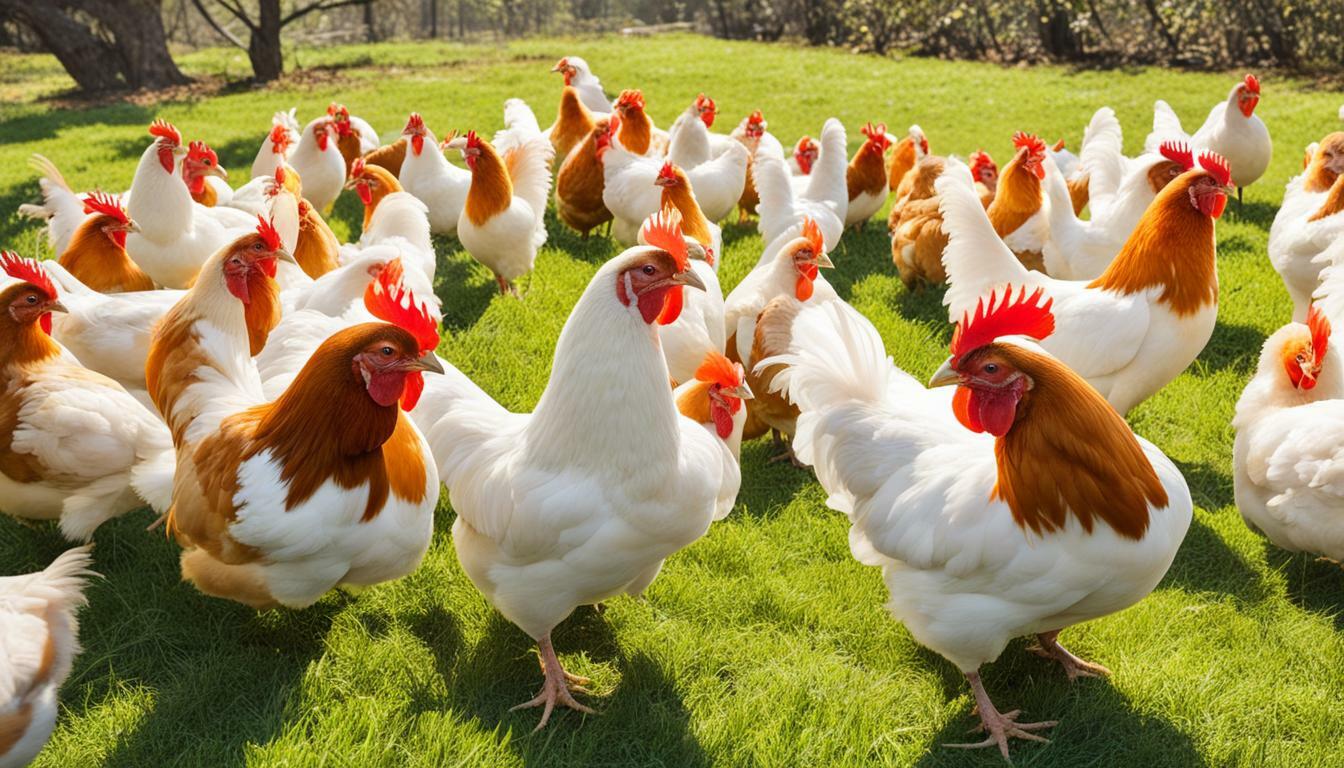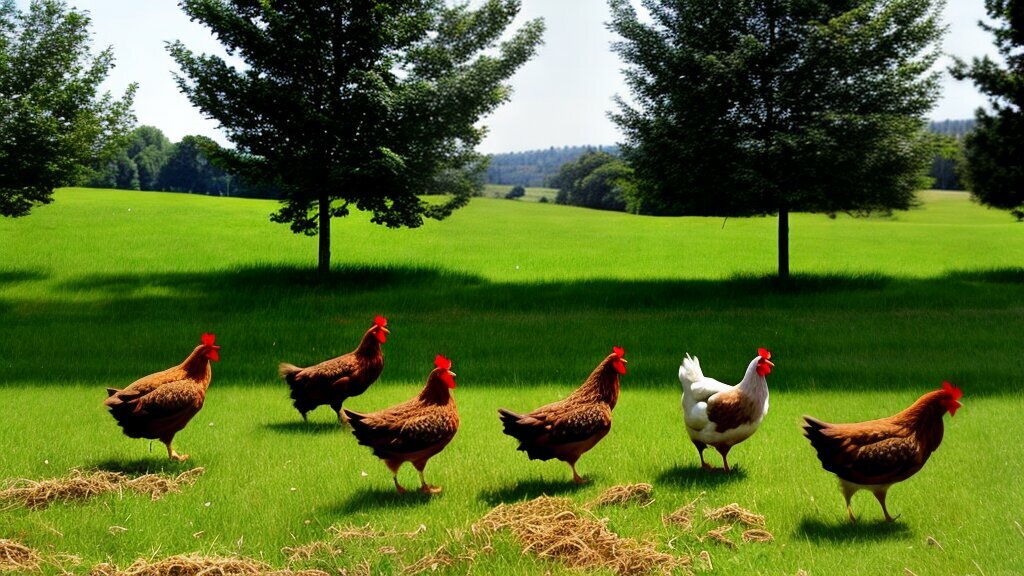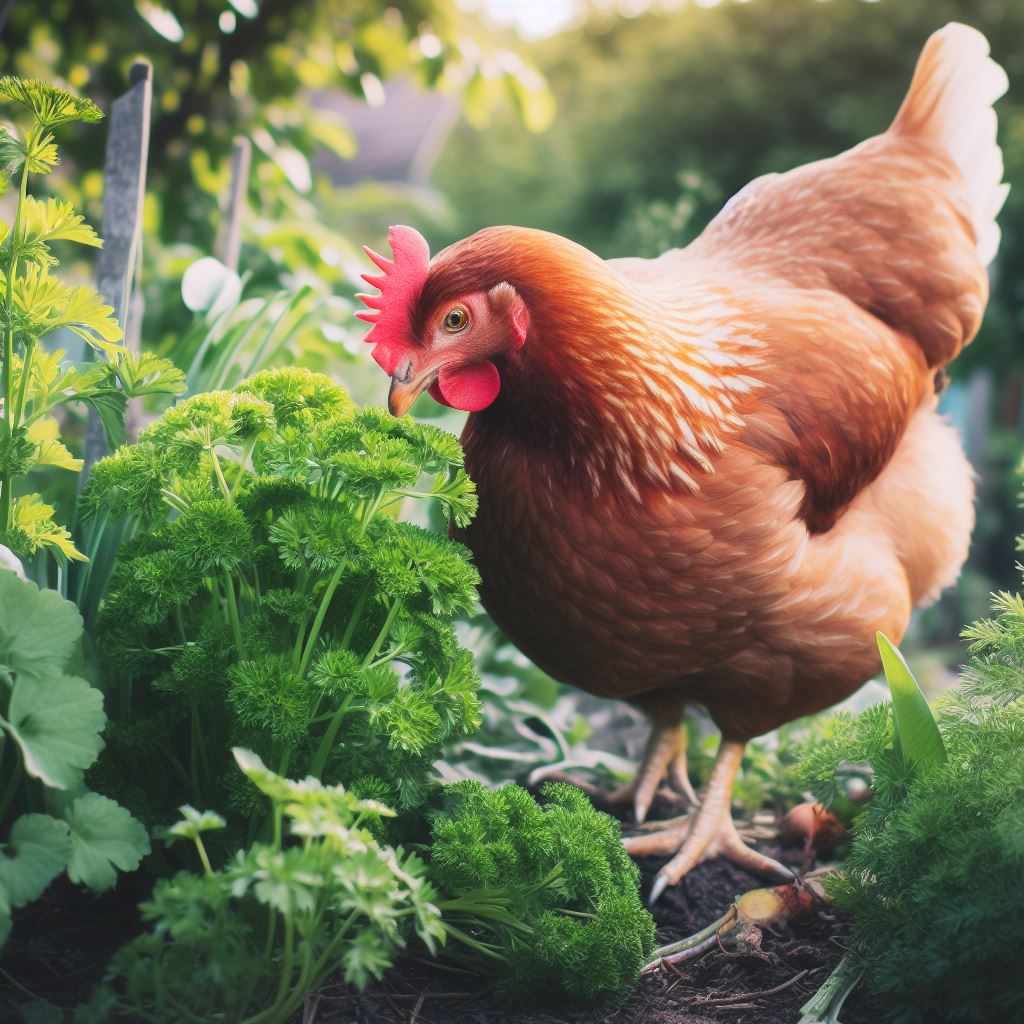Can Chickens Eat Persimmons? Discover the Answer Today!

Table of content:
- Are Persimmons Safe For Chickens?
- Can Chickens Eat Persimmon Skin and Seeds?
- What Parts of Persimmons Can Chickens Eat?
- How Much Persimmon Can a Chicken Eat Daily?
- Do Chickens Like the Taste of Persimmons?
- Will Persimmons Upset a Chicken’s Stomach?
- Are There Any Benefits to Feeding Chickens Persimmons?
- Should Persimmons be Fed to Chickens as a Treat or Regular Food?
- Can Too Many Persimmons Cause Diarrhea in Chickens?
- Can Baby Chicks Eat Persimmons or Should You Wait Until They Are Adults?
- Conclusion
Persimmons are a sweet, tasty fruit that can be found in the late summer and fall. If you have backyard chickens, you may be wondering if it’s safe and healthy to offer persimmons as a supplemental treat in their diet. There are a few things to consider before feeding persimmons to chickens.
Are Persimmons Safe For Chickens?
Persimmons are not toxic or poisonous to chickens. Both wild and domesticated chickens will enjoy eating ripe persimmons when given the opportunity. However, there are some risks to feeding too many persimmons that should be kept in mind:
- Choking hazard – Persimmon flesh is soft and slippery. Chickens may choke if they swallow large pieces of persimmon whole.
- High sugar content – Too much fruit sugar from overripe persimmons can cause digestive upset.
- Small seeds – Persimmon seeds pose a potential choking risk or intestinal blockage if consumed in excess.
As long as persimmons are fed properly and in moderation, chickens can eat them safely. Always monitor chickens when offering new foods to watch for signs of illness or allergic reaction.
Can Chickens Eat Persimmon Skin and Seeds?
Chickens can eat the flesh, skin, and seeds of ripe persimmons. However, it’s best to take some precautions:
- Skin – The skin of very ripe persimmons may be slippery and hard for chickens to grasp. Consider peeling the skin or cutting persimmons into pieces to reduce choking risk.
- Seeds – While not toxic, persimmon seeds are hard and pose a hazard if chickens swallow them whole. Remove seeds or limit how many persimmons with seeds chickens eat.
- Unripe persimmons – Chickens should only eat soft, ripe persimmons. Unripe fruit is too hard, acidic, and astringent for chickens to consume.
As a treat, giving chickens a few peeled, seedless pieces of ripe persimmon is safest. Monitor their consumption to prevent issues.
What Parts of Persimmons Can Chickens Eat?
Chickens can eat the flesh, skin, seeds, leaves, and stems of ripe persimmons. However, chickens should only consume the flesh from ripe fruit in moderation.
Here is a breakdown of each part of a persimmon and how it affects chickens:
- Flesh – The soft, sweet flesh of ripe persimmons provides a source of nutrients, sugar, and carbs. It’s safe in moderate portions.
- Skin – Soft persimmon skin is edible but slippery. Peel it or cut into pieces to reduce choking hazard.
- Seeds – Small and hard but not toxic. Limit intake to prevent blockages. Remove seeds from treats.
- Leaves – Non-toxic and provide foraging interest. Too many leaves may reduce appetite.
- Stems – Edible and provide fiber. Can also poke or scratch chickens’ throats so best removed from fruit.
For safety and health, focus treats on small, peeled, seedless pieces of ripe persimmon flesh.
How Much Persimmon Can a Chicken Eat Daily?
chickens can eat a few slices of persimmon 1-2 times per week. A single persimmon sliced into small pieces is enough for 3-5 chickens as an occasional treat.
Limit treats to no more than:
- Chicks under 12 weeks – None. Wait until fully feathered.
- Adult chickens – 2 persimmons per chicken weekly.
- Overweight chickens – 1 persimmon slice 2-3 times monthly.
- Egg-laying hens – 1-2 slices daily for nutrients but monitor weight.
Feed persimmon treats after chickens eat a full meal to avoid appetite disruption or nutritional deficits. Always provide plenty of fresh water when feeding fruit treats.
Do Chickens Like the Taste of Persimmons?
Most chickens enjoy the flavor of ripe persimmons. The sweet taste and soft texture are similar to other fruits chickens love like berries, melons, and apples.
Chickens use taste to discern safe, beneficial foods. The appealing sweetness and aroma attract chickens to persimmons.
The high sugar and carbohydrate content offers quick energy. Persimmons are a tempting and rewarding snack chickens find hard to resist.
However, some chickens may dislike the flavor or texture at first taste. Introduce new treats slowly and watch for preferences.
Will Persimmons Upset a Chicken’s Stomach?
Ripe persimmons are usually well tolerated in moderation. However, eating too many may cause:
- Dehydration – Persimmons are 85% water. Too much can deplete electrolytes.
- Weight gain – High sugar increases calories. Obesity strains the heart and joints.
- Digestive upset – Unripe persimmons contain tannins that irritate the gut.
- Crop impaction – Excessive fiber or whole seeds may clog the crop.
- Reduced nutrition – Persimmons lack protein, vitamins, and minerals chickens need.
To prevent issues, feed persimmons as an occasional treat, not a dietary staple. Always provide a balanced diet and clean water. Monitor chickens for signs of illness.
Are There Any Benefits to Feeding Chickens Persimmons?
Persimmons offer a few nutritional benefits:
- Natural sugars – Ripe fruit provides fast carbohydrate energy.
- Fiber – Both pulp and skin add intestinal fiber.
- Beta-carotene – Orange flesh contains vitamin A precursors for immunity and vision.
- Antioxidants – Persimmons have compounds that reduce inflammation and stress.
- Lycopene – A pigment that promotes bone and feather strength.
- Citric acid – Small amounts aid digestion.
However, chickens should get most nutrients from complete feed. Think of persimmons as a sweet, low-risk snack, not a major dietary component.
Should Persimmons be Fed to Chickens as a Treat or Regular Food?
Persimmons are best fed to chickens as an occasional treat in moderation. They should not become a significant part of their regular diet.
Reasons to limit persimmons:
- High in sugar – Too much can lead to obesity, diarrhea, and other issues.
- Low in protein – Unlike feed, persimmons lack adequate protein for development, egg-laying, etc.
- Unbalanced nutrition – Persimmons do not provide all the vitamins and minerals chickens need daily.
- Appetite inhibition – Persimmons may temporarily decrease appetite for more nutritious foods.
- Quick to spoil – Cut fruit attracts flies and bacteria. Leftovers should be discarded promptly.
For optimal nutrition and health, chickens should eat a complete feed as their dietary foundation. Enjoy persimmons as a tasty, low-risk snack in moderation.
Can Too Many Persimmons Cause Diarrhea in Chickens?
Eating too many persimmons can definitely cause loose stool or diarrhea in chickens. There are a few reasons why:
- Excess fruit sugar – The natural sugars pull moisture into the intestines.
- Low fiber – Unlike the whole fruit, juicy pulp lacks soluble fiber to form stool.
- Seeds – Small seeds speed intestinal transit causing watery droppings.
- Tannins – Slightly unripe fruit contains astringent tannins that irritate the gut lining.
- Dehydration – Increased fluid loss through diarrhea requires more water intake.
- Electrolyte imbalance – Important minerals like potassium and sodium can be depleted.
To prevent diarrhea, feed ripe persimmons in moderation and limit high-risk parts like seeds and skin. Keep chickens hydrated and watch for signs of illness.
Can Baby Chicks Eat Persimmons or Should You Wait Until They Are Adults?
It’s best to wait until chicks are fully feathered and 12 weeks old before feeding any treats. Here’s why:
- Delicate digestion – Young chicks have a sensitive intestinal tract that is still developing.
- Risk of impaction – Giving whole seeds, chunks, or skins to chicks poses a choking/blockage hazard.
- Need for nutrients – Chicks require very specific ratios of protein, carbs, vitamins for proper growth.
- Underdeveloped immune system – Chicks lack the antibodies to fight pathogens from spoiled fruit.
- Limited food regulation – Chicks will overeat tasty fruit, disrupting a balanced diet.
Once chickens are adulthood, their digestive system can better tolerate fruit sugars and fiber. Still feed persimmons in moderation due to remaining risks.
Conclusion
Ripe persimmons make a safe, nutritious occasional treat that most chickens will relish. However, persimmons lack key nutrients and should not become a dietary staple. Feed persimmons in moderation, monitor for signs of illness, and provide ample fresh water. Remove skins, seeds, and stems and introduce treats slowly. Focus on feeding a nutritionally balanced ration to ensure optimal health and development. With some basic precautions, chickens can enjoy persimmons as a sweet, low-risk snack.
Welcome. I’m Adreena Shanum, the proud owner of this website, and I am incredibly passionate about animals, especially poultry. I founded adreenapets.com as a labor of love, stemming from my desire to share my knowledge and experiences with poultry enthusiasts worldwide.




